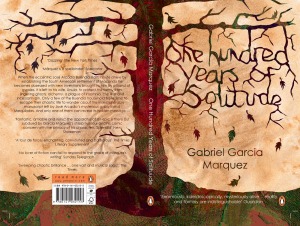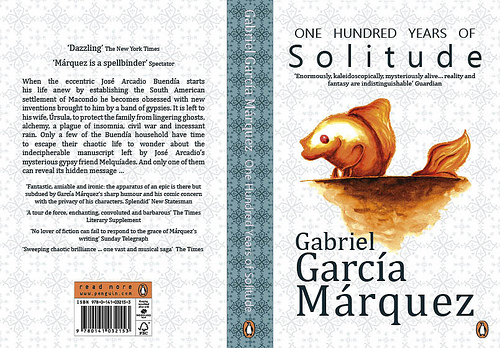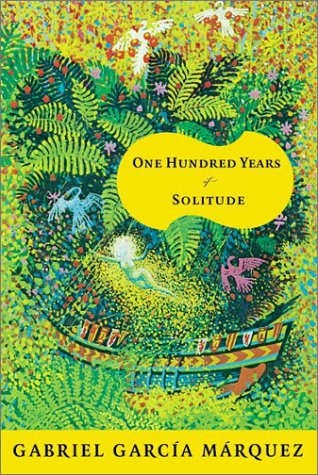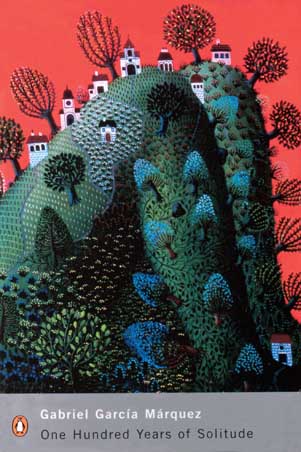Fiction for adults, fiction for children – which is more complex?
The obvious answer is that books for adults are generally more complex than books for children. They use a wider vocabulary, more sophisticated language, deal in “adult” concepts and experiences, are fluent in abstract ideas and thoughts, and assume a familiarity with literary genres and devices that cannot be counted on in the average child reader.
Once we look carefully at this list, however, some of its items appear rather less solid. First, not all books for adults are in fact particularly sophisticated. Literary fiction of the kind that makes the Man Booker shortlist represents only a small percentage of the adult fiction published and sold, and it would misleading to take Hilary Mantel and her peers as representative of “adult fiction”. Moreover, if the vocabulary of (some) children’s books is limited, this need not imply simplicity: ask Hemingway or William Blake. Nor are sophisticated post-modern devices such as intertextuality, frame-breaking, genre-mixing and
mise en abyme the preserve of adult literature: in fact, they are probably found more often in picture books for young children, from Lauren Child’s
Who’s Afraid of the Big Bad Bookto the Ahlbergs’
Jolly Postman.
It’s true that children’s books don’t generally deal with specifically adult experiences such as old age or marital infidelity (although some do); but equally, adult books don’t in general deal with the specific experiences of children, such as going to school for the first time. None of these experiences is more, or less, deserving of treatment in fiction than the others.
What about plots, though? Are the plots of adult books more complex than those of children’s books? Here I’m reminded of
an article written by Diana Wynne Jones shortly after she started writing adult fiction in the early 1990s, having already been a children’s writer for almost twenty years. She explains that her assumptions were in fact the opposite – that a point she would have explained only once in a book for children she felt the need to repeat several times for adult readers: “These poor adults are never going to understand this; I must explain it to them twice more and then remind them again later in different terms.” This idea derived from her experience of being told by adults that they found the plots of some of her children’s books hard to follow (and that therefore they must be "too difficult for children"). Children themselves, however, never seemed to have any difficulty. Jones’s explanation is an interesting one:
Children are used to making an effort to understand. They are asked for this effort every hour of every school day and, though they may not make the effort willingly, they at least expect it.
Adults, by contrast, are used to knowing things already, and their tolerance for uncertainty – negative capability would be a good term, if Keats hadn’t already nabbed it – is correspondingly less. All of us, when we read a novel, will encounter unfamiliar ideas and unexplained facts. I suppose we must have a kind of mental “holding pen” in which to place such items, in the hope that they will be clarified and resolved at some later point. But perhaps children’s holding pens have a greater capacity than those of adults, simply because they are more accustomed to dealing with new experiences? If so, we might expect them to be more able to deal with complex plots – and, in that sense at least, to be more sophisticated readers.
I don’t think that’s a complete answer to the rather silly question with which I started – because of course complexity is multifaceted – but I do find it an intriguing idea. In any case, if I ever see an adult book with as complex a plot as Jones’s
Hexwood I'll be very surprised.
Have been thinking about this as I am doing both – sometimes concurrently.
When I started writing The Butterfly Heart I did not have in mind a target audience, it was just a story I wanted to write. It was when I came to my characters that I realised this could be a story that children would read. I am happy however that both children and adults have read it.
I think there are different freedoms in writing for different audiences – I definitely find myself freer in language use when I am writing books specifically geared to an adult audience, I do not check myself as often. The only question I would be asking myself is whether the language I have used is the best it can be.
I would ask myself a similar question when writing for children – but added onto that would be whether it would allow for easy pleasure in its readers. There is a different freedom I find in writing for children – not sure what to call it other than flights of fancy, a freedom of imagination. Maybe I should feel that freedom in writing for adults, and I do to a certain extent, but more so with children.
One of the greatest writers ever (to my mind) is Gabriel Garcia Marquez – and I have only ever read him in translation. He combines everything in one – beautiful use of language, wondrous flights of fancy and great storytelling. There is no one writing now who comes close to him in the way he blends magic and reality, who so seamlessly takes you into a world that is real but which shimmers with a sense of unreality. Can you just imagine what it would be like to read him in Spanish?
For me he has all the freedoms combined in writing for children and adults – a freedom with language and imagination combined with a powerful storytelling ability – that ability which is at the core of any good book.
His titles alone are wondrous – has there ever been a better title than One Hundred Years of Solitude? Love in the time of Cholera? Chronicle of a Death Foretold? Memories of my Melancholy Whores? Strange Pilgrims? I’ll stop now – but can you imagine the fun that illustrators have had with designing those covers?
Here are just a few of them for One Hundred Years of Sol itude.
itude.




Today's Ten Most Viewed posts were set up in advance, but I've just checked the stats, and we have a new entry!
Saturday's very witty post from Cathy Butler has had so many viewings already that it's now our eighth most-viewed post, so if you haven't already read it, here as a special Birthday Bonus is:
There'll be another post from Cathy, under her former name of Charlie Butler, later on today; and the next scheduled post will be along in a few minutes.
Here at ABBA we usually talk about children’s books, and sometimes about children. But what about adults? Not many people realise that adults have books written especially for them, too, and that it’s a thriving market. In order to learn about the world of adults’ books, I’ve asked Moira Skidelsky of The Square Grey Bookshop in Hampstead, a shop specializing in books for grown-ups, to say a few words about the often-mysterious world of adults and their reading...
Buying books for adults – it can be a puzzle, can’t it? Adults have such strange, changeable tastes. Things that seem hugely interesting to you may be matters of indifference to them, and vice versa. They’re passionate about the LIBOR rate one week, and before you know it they’ve moved on to the next “very important subject”. No wonder, then, that when it comes to birthdays, Christmas, Mother’s Day and Father’s Day, I have so many children consulting me about what and how to buy.
The first thing to remember is that adults are at an age when they’re trying to establish and maintain their own place in the world. They may like to give the impression of being independent and mature, but they always have one uneasy eye on what the next adult is doing, scared of standing out (too much!) from the crowd. So, it's a good idea to find out about the latest buzz books amongst the adults around you. Take a peek at what your adult’s friends are reading, or look at the posters in bus and railway stations. A word of warning, though. Crazes can be very intense, but they can also disappear with baffling rapidity, never to be seen again. Your adult won’t thank you if you buy them The Bridges of Madison County or The Da Vinci Code when the “in” crowd is reading Fifty Shades of Grey!
One question I always ask customers is: are you buying for a man or a woman? It’s important to understand that men and women like quite different things, which is why in my shop I have separate sections marked “Books for Men” and “Books for Women” – just as children's publishers sometimes have separate lists of Books for Boys and
26 Comments on Recommending Books for Grown-Ups - Cathy Butler, last added: 7/10/2012










Wonderful! I agree entirely. And I'd add that children don't have established methods of constructing 'complexity' so they are more mentally nimble. An adult will pick up a book such as Tristram Shandy or Ulysses and think 'this doesn't fit any of my models for stories - it's going to be hard', and then there is automatically a barrier. A child is used to newness and to adjusting their mental models all the time. So a child picking up The Stinky Cheese Man will think 'oh, another kind of book!' and extend their mental model to accommodate it.
Which I suppose is unpicking the question really and asking whether complexity mean different things to adults and children. And so does a children's book have to be more complex in adult terms in order to be even a bit complex in children's term?
An adult will pick up a book such as Tristram Shandy or Ulysses and think 'this doesn't fit any of my models for stories - it's going to be hard'
That's an excellent point!
We were discussing this Downunder recently - and I mentioned some of the "adult" books I read as a child. Someone said, "But you didn't understand them!" I think I did - perhaps not in the way an adult would understand them but I still understood them. My father actually read a passage from Ulysses to us at school (he was also my teacher)when I was ten and I have never forgotten it.
"Understand" is such a weasel word, isn't it? It comes in many different kinds and degrees, but we tend to use our own understanding as the standard by which to judge that of others. Half of language is rhythm, and that can be "understood" long before any individual words.
This is SUCH a great post, thank you. It always annoys me when people don't realise how difficult it is to plot, write, edit and illustrate children's books - the fine-tuning involved.
And exactly spot-on re: children being used to making efforts. This is particularly true for vocabulary. Children are ALWAYS learning new words - that's what they've been doing non-stop since they were born. They can be trusted with not freaking out if a new, 'hard' word appears on the page, because that's what their everyday life is like. The same can't be said of adults.
Excellent post. In my experience, kids are definitely more 'mentally nimble' as the stroppy author says, adjusting to change and to new things far more quickly than adults. I think they are more of a challenge to write for than adults.
Watching my five-year-old at the very start of learning to read, I can see when he doesn't 'get' the story, but what I like is watching him - if the book has his interest - pluck what he does understand from the words and the pictures, the rhyme play, the fun of it. Children are often underestimated (although not by children's writers).
Wonderful post. I read adult books when I was a kid and today read kids books as an adult. If I understood everything I read when I was a kid I can't tell you. All I can say is I enjoyed the experience - which I think is one of the most important parts of the reading experience.
Thought provoking post, thank you. I think it was Meg Rosoff who said that she wrote the stories she'd like to read, now, as an adult. As far as young adult fiction's concerned, I try to do the same.
My 14 month old grandson loves a book called Hug, by Jez Alborough, which has a word on every page, but only three words in all - I love it too, as I can make up the rest from the pictures to suit him as he grows.
WOnderful, Cathy! I gave up on Hexwood because it was FAR FAR above my head and out of my reach. And same with Red Shift...and lots of others.You are quite right about this, I think. The average book read on a commuter train to work is easy peasy in comparison to many children's books!
A cracking post - I often think of this quotation:
“And if the book will be too difficult for grown-ups, then you write it for children.”
― Madeleine L'Engle
Thanks for the post.